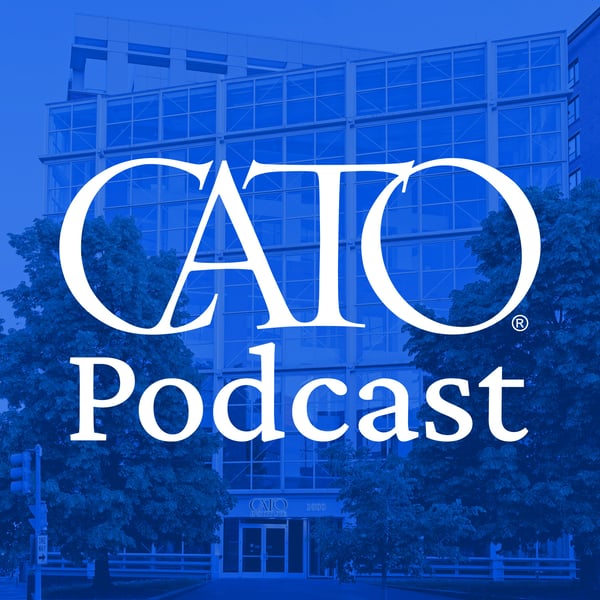Best of Cato Daily Podcast: Equal Protections and Marriage
Cato Podcast
Cato Institute
4.6 • 949 Ratings
🗓️ 23 May 2025
⏱️ 10 minutes
🧾️ Download transcript
Summary
Hosted on Acast. See acast.com/privacy for more information.
Transcript
Click on a timestamp to play from that location
| 0:00.0 | This is longtime Cato Daily podcast host, Caleb Brown. I've moved on to head the Kentucky's |
| 0:04.6 | Bluegrass Institute, but I wanted to leave listeners with some favorite episodes over the last |
| 0:09.9 | nearly 18 years of my hosting tenure. I tried to pick episodes that are relevant to our current |
| 0:15.8 | moment. Thank you for listening. |
| 0:21.9 | This is the Cato Daily podcast for Wednesday, May 18, 2011. |
| 0:26.2 | I'm Caleb Brown. |
| 0:27.3 | Marriage equality is a constitutional issue, a federal issue. |
| 0:31.0 | According to Attorney David Boyes, equal protections enshrined in the 14th Amendment demands marriage equality now. |
| 0:37.4 | We spoke about the case of |
| 0:39.0 | Perry v. Schwarzenegger at a Cato Institute forum on the subject held today. Given the standard |
| 0:45.7 | libertarian argument that the government ought to get out of the business of marriage altogether, |
| 0:51.5 | failing that, why not leave this in the hands of states? Why not let federalism |
| 0:56.5 | help us establish what should and should not be when it comes to marriage? |
| 1:03.0 | I think primarily because the Equal Protection Clause and the due process clause are part |
| 1:09.3 | of the national constitution. |
| 1:11.6 | The whole point of passing the 14th Amendment was that there were certain constitutional |
| 1:17.1 | standards that ought to apply to all of the states. |
| 1:20.7 | And that when you were talking about fundamental rights like the right to marry, that was |
| 1:25.1 | something that you needed to have protection for people in every |
| 1:30.3 | state. 14 times, I think, 14 or 18 times since 1988. The United States Supreme Court |
| 1:40.3 | has held that marriage is a fundamental right. It is a right that is inherent in the right to liberty, |
| 1:48.0 | to association, to due process, equal protection. Those are national rights. You don't want to put |
... |
Please login to see the full transcript.
Disclaimer: The podcast and artwork embedded on this page are from Cato Institute, and are the property of its owner and not affiliated with or endorsed by Tapesearch.
Generated transcripts are the property of Cato Institute and are distributed freely under the Fair Use doctrine. Transcripts generated by Tapesearch are not guaranteed to be accurate.
Copyright © Tapesearch 2025.

